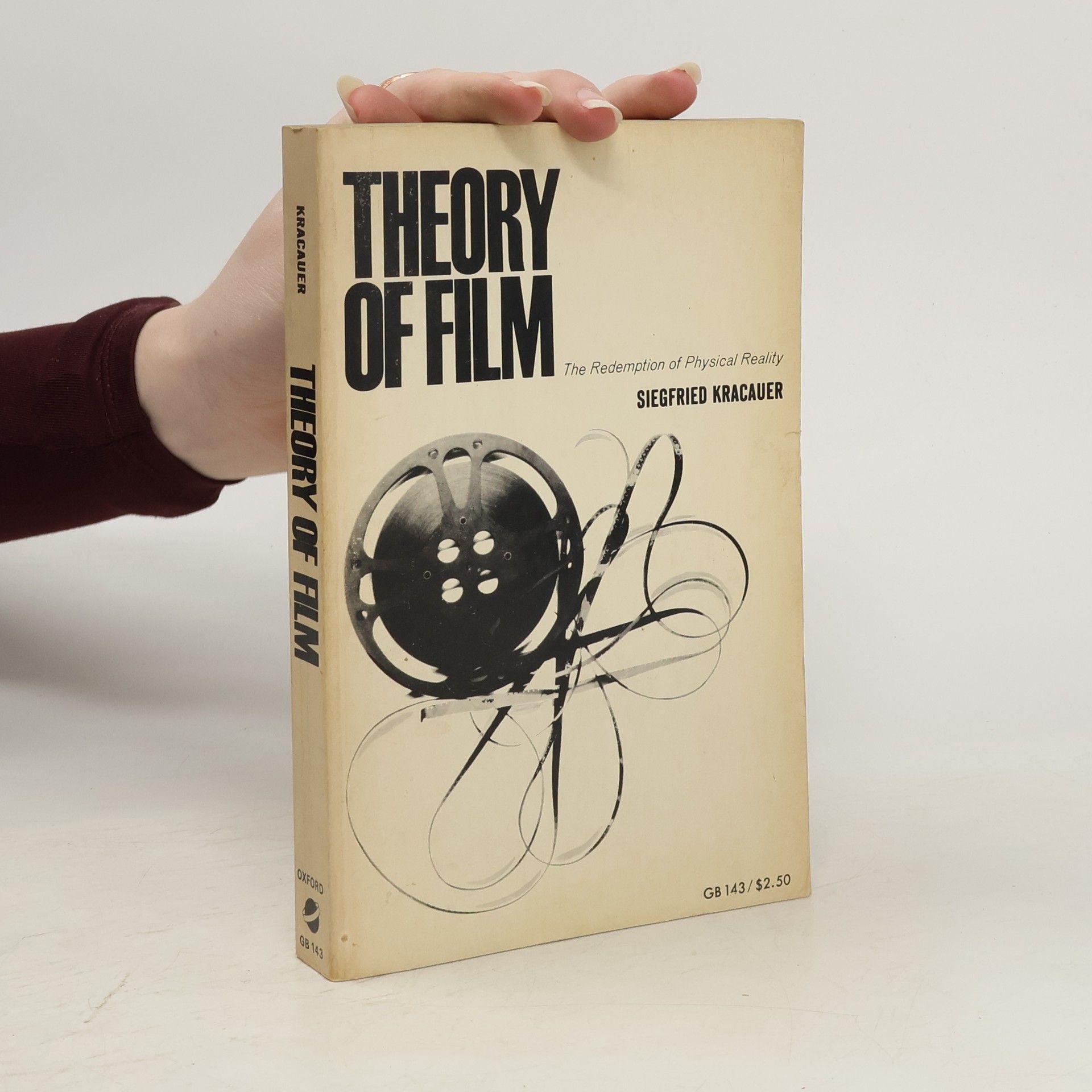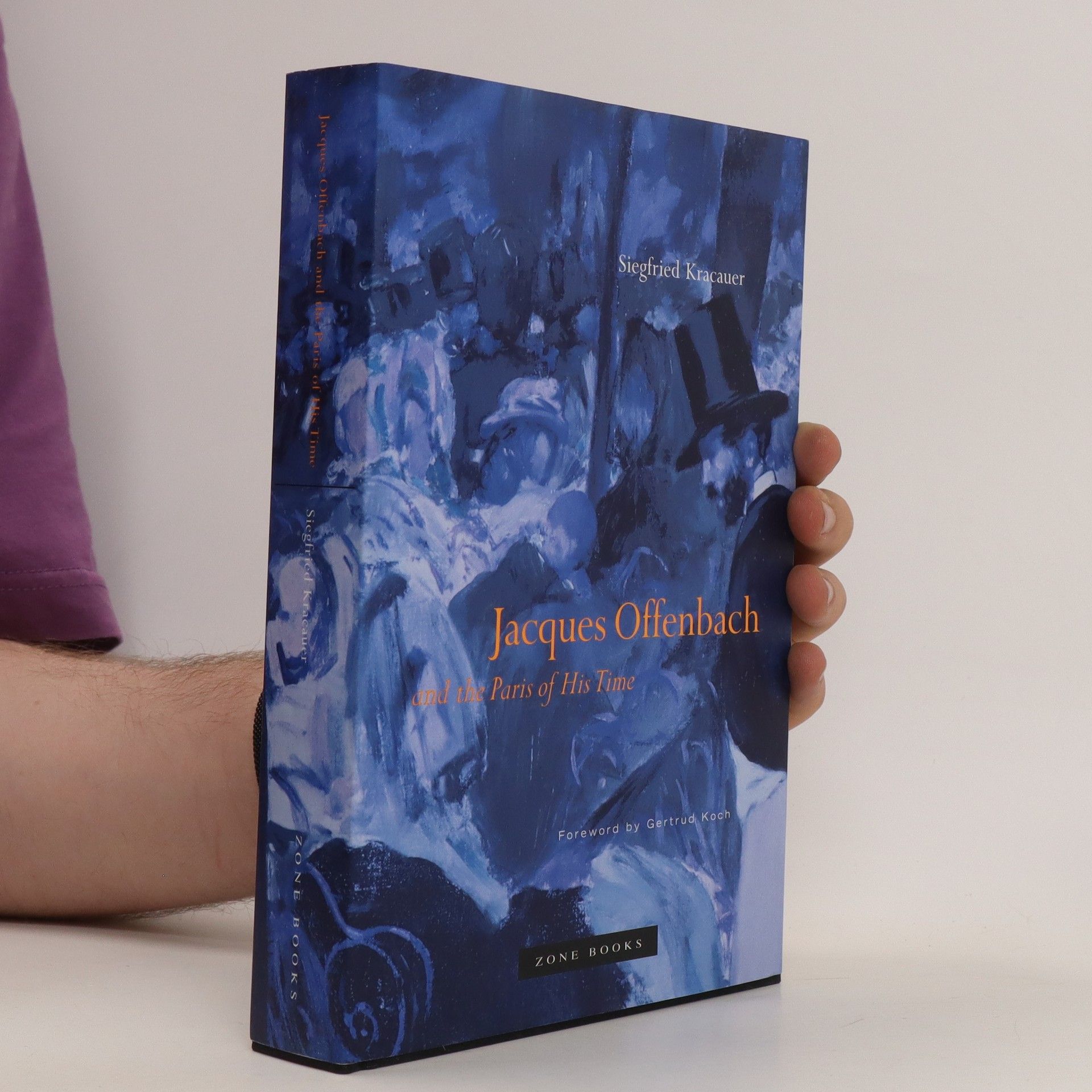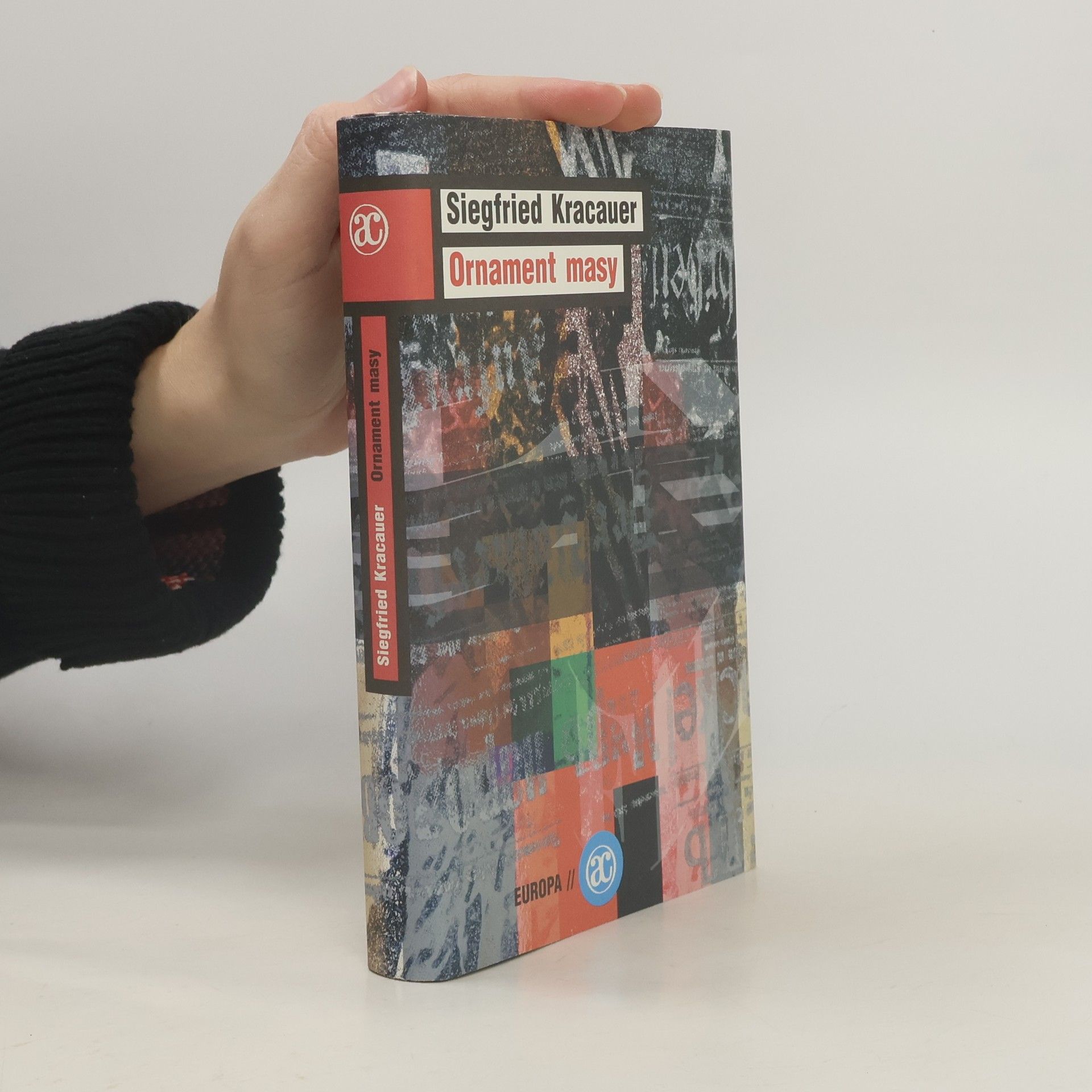Soubor esejů německého filmového teoretika, sociologa a historika (1889-1966), jednoho z nejzajímavějších myslitelů 20. století. Témata esejů jsou zdánlivě všední, často jde o jevy, které vypadají zcela neproblematicky, dokud se na ně nezaměří autorův pohled. Kracauer se zabývá také knihami, které ovlivnily evropské myšlení, osobnostmi ze světa literatury, umění a filozofie, a nabízí čtenáři překvapivé a vpravdě objevné pohledy.
Siegfried Kracauer Knihy
Tento myslitel zkoumal fenomény moderní společnosti, od detektivních románů po film a kulturu masové zábavy. Jeho analýzy se soustředily na to, jak se lidé obrací k „průmyslu rozptýlení“, když se cítí duchovně ztraceni, což vedlo k ostré kritice kapitalismu a totalitních režimů. Kracauerovy práce pokládají základy moderní filmové kritiky a zkoumají psychologické kořeny společenských jevů.







Zaměstnanci: Z nejnovějšího Německa
- 196 stránek
- 7 hodin čtení
Titul vyšel poprvé v Německu v roce 1930 a již následující rok byl přeložen do češtiny. Autor zde popisuje proletarizaci a ideologické „bezdomovectví“ zaměstnanců. Na základě rozhovorů a příkladů analyzuje pozici zaměstnanců mezi industrializovanou prací, městským prostředím a zábavní kulturou. Autor se ke „kultuře zaměstnanců“ staví kriticky, negativně hodnotí úniky z každodenního života prostřednictvím kultury a sportu, které podle něj vedou k potlačování reality.
Selected Writings on Media, Propaganda, and Political Communication
- 408 stránek
- 15 hodin čtení
This book brings together a broad selection of Siegfried Kracauer's work on media and political communication, much of it previously unavailable in English. It features writings spanning more than two decades, from the 1930s to the early Cold War period.
From Caligari to Hitler
- 432 stránek
- 16 hodin čtení
An essential work of the cinematic history of the Weimar Republic by a leading figure of film criticism First published in 1947, From Caligari to Hitler remains an undisputed landmark study of the rich cinematic history of the Weimar Republic. Prominent film critic Siegfried Kracauer examines German society from 1921 to 1933, in light of such movies as The Cabinet of Dr. Caligari, M, Metropolis, and The Blue Angel. He explores the connections among film aesthetics, the prevailing psychological state of Germans in the Weimar era, and the evolving social and political reality of the time. Kracauer makes a startling (and still controversial) claim: films as popular art provide insight into the unconscious motivations and fantasies of a nation. With a critical introduction by Leonardo Quaresima which provides context for Kracauer’s scholarship and his contributions to film studies, this Princeton Classics edition makes an influential work available to new generations of cinema enthusiasts.
Kracauer's profound theoretical investigation revealed film as the form that best captured the new modes of experience that characterize modernity.
Ginster
- 336 stránek
- 12 hodin čtení
Set against the backdrop of World War I, the story follows a young architecture student in Munich who cleverly avoids military enlistment. Through the character of Ginster, a Chaplinesque antihero, the narrative explores themes of self-absorption and societal demands. The horrors of war remain largely offstage, with civilian life heavily influenced by military language. As Ginster grapples with his desires and the relentless pressures of the world around him, the novel reflects on the absurdity of war and its pervasive impact on everyday life, making it resonate in contemporary times.
Focusing on the unique qualities of film, this study argues that motion pictures are fundamentally different from traditional arts like theater and literature. Dr. Kracauer emphasizes film's ability to capture the everyday world, highlighting its strength in portraying fleeting moments and authentic experiences. He posits that if film is indeed an art, it distinguishes itself through its photographic nature, adept at revealing the subtleties of life, such as the ripple of leaves and the nuances of human behavior.
Ideas, talks and some scattered observations
Aufzeichnungen aus Europa (1960-1965)
Classic Essays on Photography
- 300 stránek
- 11 hodin čtení
Containing 30 essays that embody the history of photography, this collection includes contributions from Niepce, Daguerre, Fox, Talbot, Poe, Emerson, Hine, Stieglitz, and Weston, among others.
